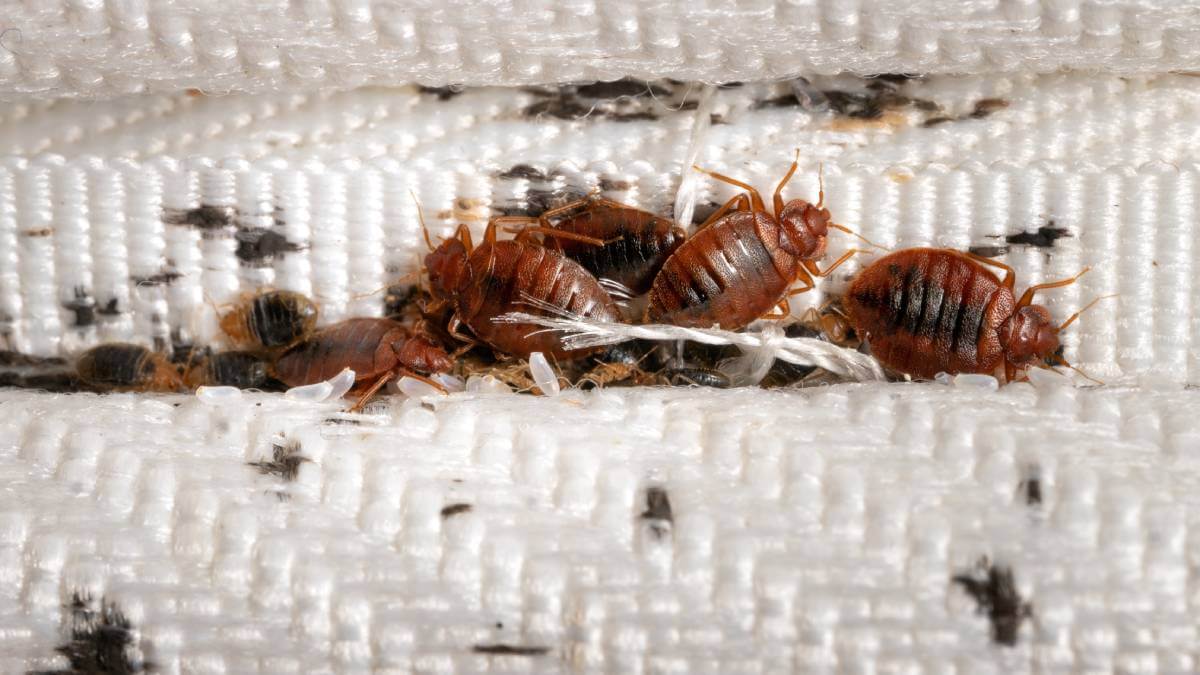Bed bugs have been in the news a bit lately as Paris copped a bit of a hiding in the international media for the levels of infestation during the Rugby World Cup and the French fashion shows.
So what’s going on, is Paris overrun with these little horrors, or is it just because the media were there anyway? And what does it mean for Australia?
Well, as for the first question, probably a little bit of both. There was a lot of press in the city for the world cup and fashion shows, but by any measure, Paris was also experiencing a heavy infestation.
Paris suffers from being Paris. People want to go there all the time and it’s one of the most frequently visited cities in the world, which makes it hard to eliminate bed bugs.
It also appears the bugs are becoming resistant to the usual chemical treatments.
They have a reputation for being a poor person’s problem, but the reality is effective treatment is costly, and many people can’t afford it.
Australia hasn’t had a serious outbreak in years due to an industry-wide code set up in 2005 by the Australian Environmental Pest Association, but that doesn’t mean you won’t experience them.
So, what are bed bugs?
To be brutal, bed bugs are nocturnal parasites that feed on the blood of humans and animals, although they can live up to a year without feeding. They prefer to feed on humans, which is frankly, creepy.
Bed bugs are small, wingless insects that are found all over the world, and as the name says, are mostly found in bedding, but can also be found in car seats, clothing, luggage and even timber furniture.
They do not transmit disease, but living with the bites can be traumatic and irritating and they are hard to get rid of.
Signs you have a bed bug infestation include waking up with bites, bed bugs on your mattress, brown spotting, which I hate to break it to you, but that’s their faeces, and a musty, sweet smell with large infestations. I hope you never smell that smell.
Bed bug bites can cause red, itchy spots and are mostly found on the legs, arms and shoulders.
Some people do not react to the bites, and sometimes a reaction can take up to nine days. The bites can become infected.
Consult your doctor for treatment. It could be as simple as a topical cream, or you may require antibiotics if the bites have become infected
None of this is good, and it doesn’t become any better when it comes to removing them, because they are stubborn little buggers.
How do you treat them
All resources I have consulted agree that while you can treat the infestation yourself, the best option is to call in professional pest control companies.
At the very basic level you will need to treat all the areas where bed bugs can hide, thoroughly vacuum the area and seal and throw out the vacuum bag and wash all bedding at 60 degrees or above.
You are most likely to contract bed bugs while travelling. If you believe you have bed bugs at your accommodation, let the management know immediately.
As a preventative measure, don’t leave any luggage or clothing on the bed or in storage such as wardrobes or drawers. Seal what you can in plastic zip-lock bags.
If you believe you have brought them home with you open your luggage outdoors or in a garage or shed.
Wash everything at 60 degrees or higher and then run through the dryer. You can always just chuck them out, might be easier.
Those things you can’t wash such as shoes, put them in a plastic bag in the hot sun.
Have you ever experienced bed bugs? Was it when travelling or at home? Why not share your experience in the comments section below?
Also read: Will Paris’ bed bugs make their way to Australia?

